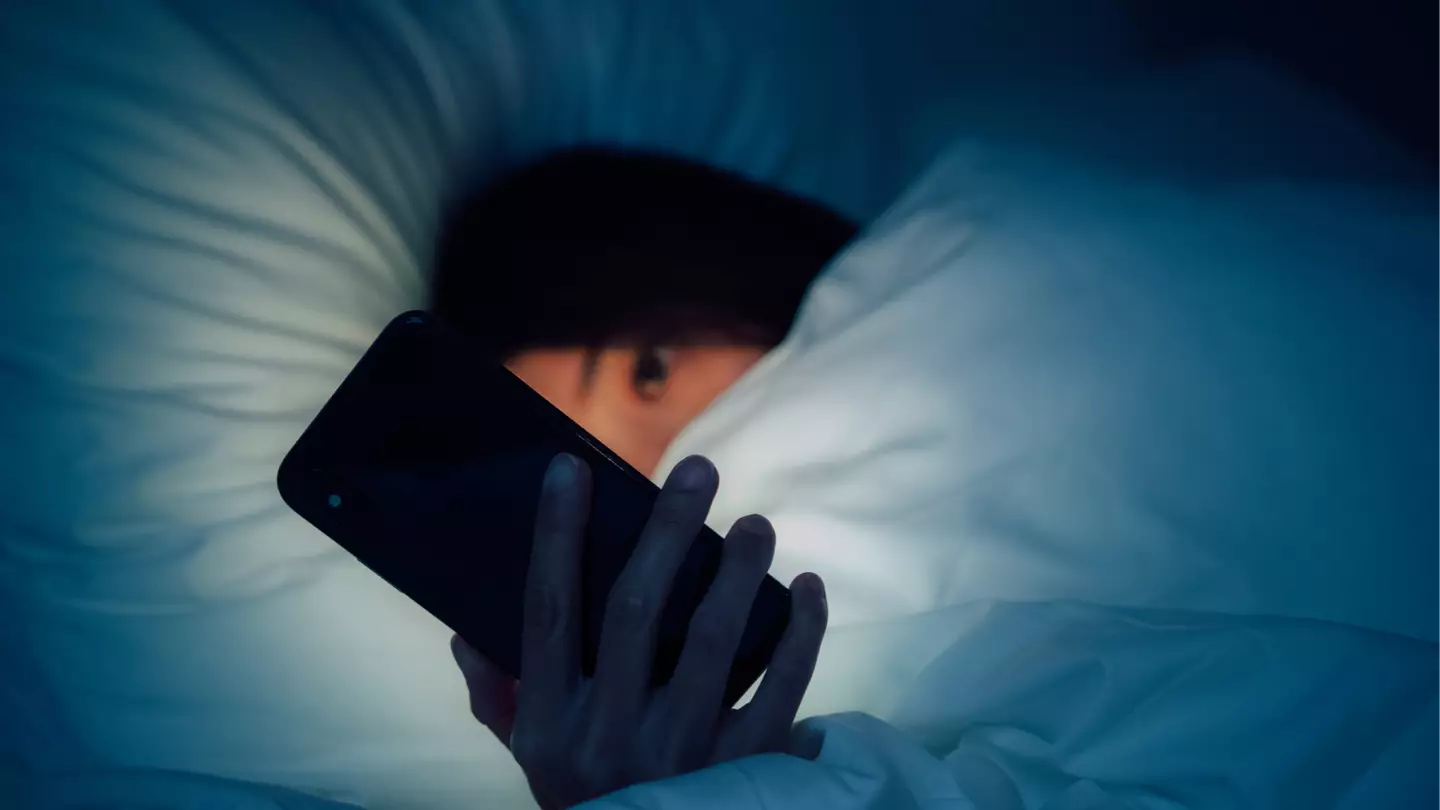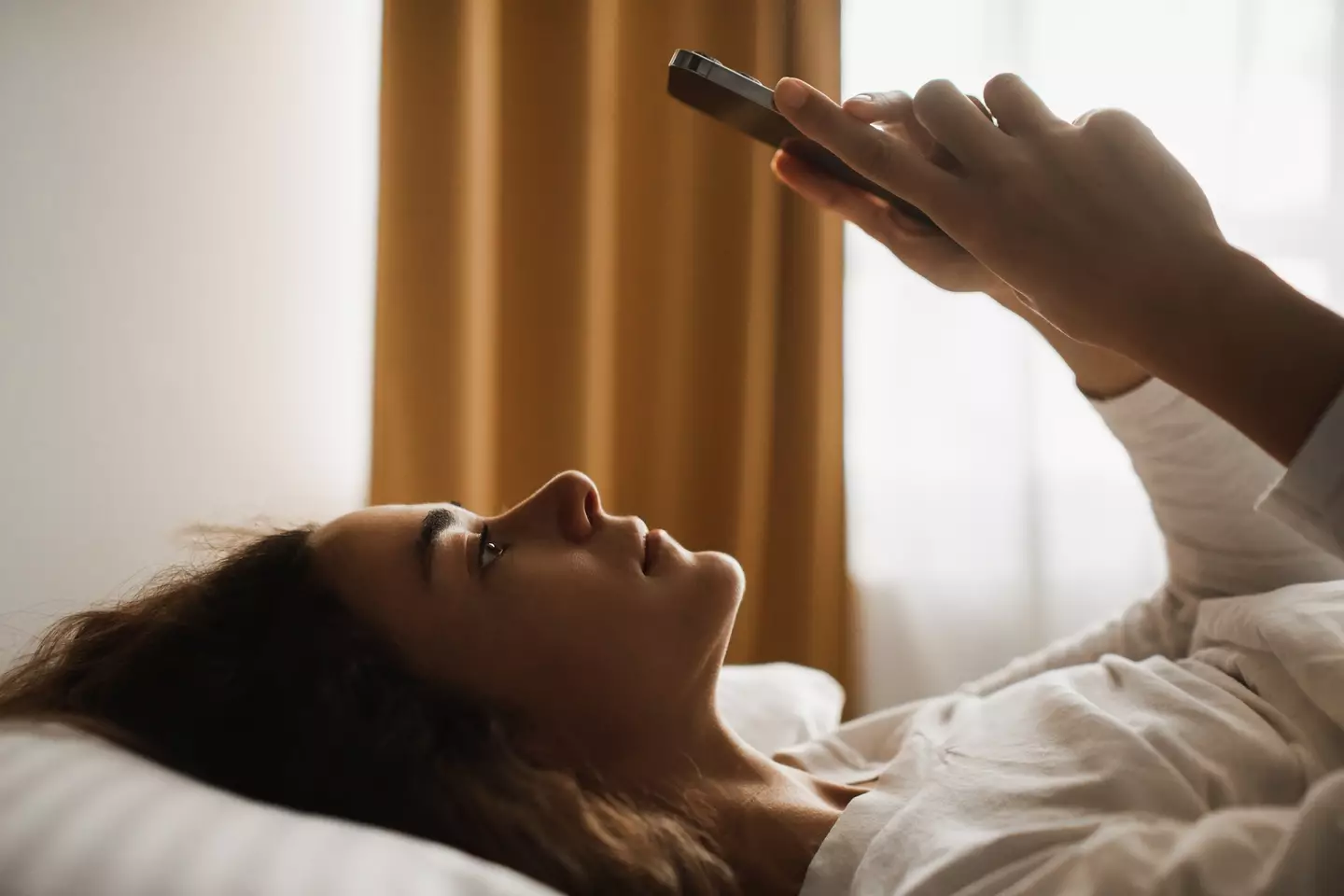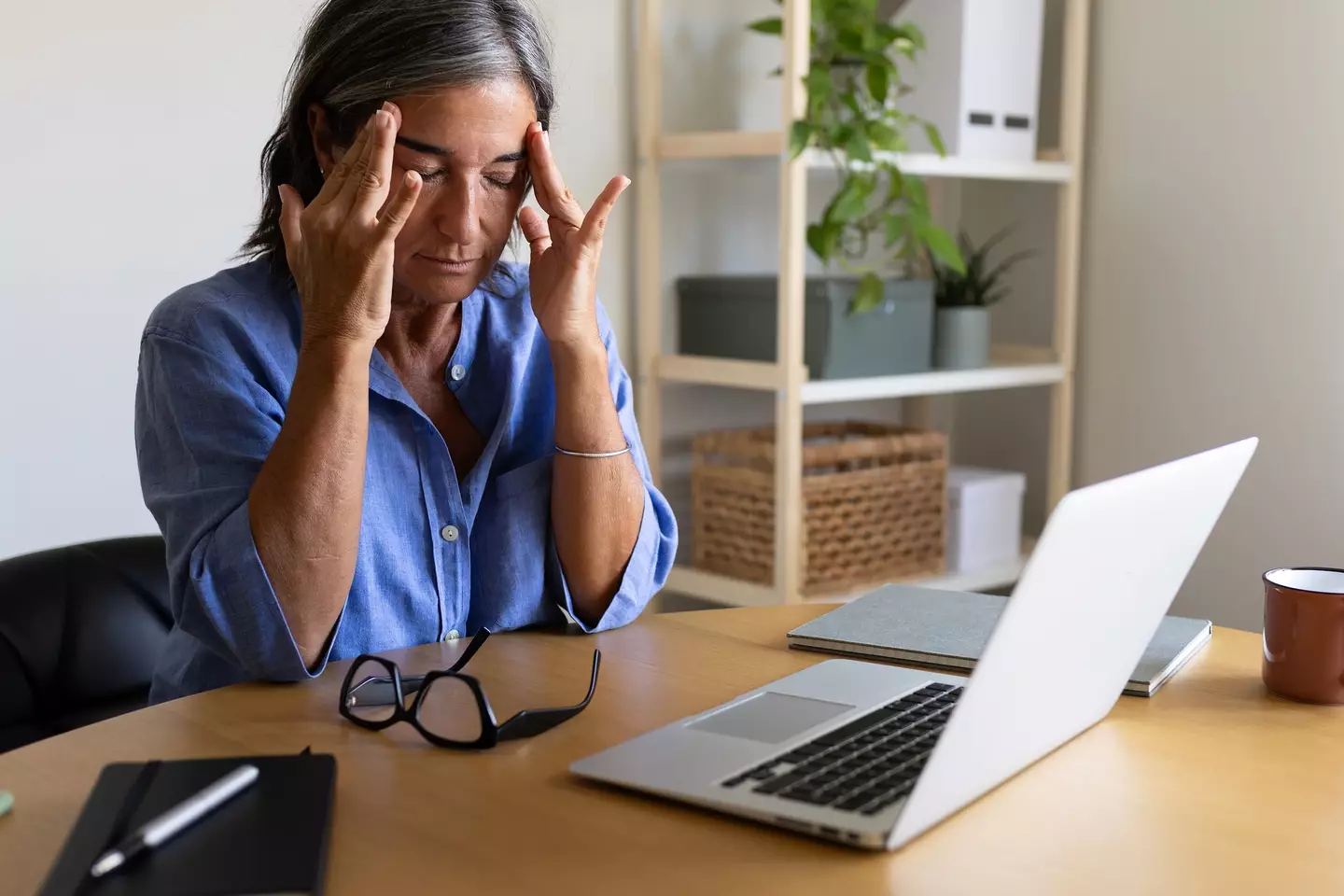
It's a situation we've all been in; your eyes are growing heavy, you're absolutely exhausted, yet you're glued to your phone.
And despite knowing you need that all-important sleep, you just can't seem to let yourself settle down.
We already know that lack of sleep can have detrimental impacts on our health, both in the short and long-term. But still, we put off sleeping anyway.
Well, it's a habit more than half of Americans have admitted to - known as 'revenge bedtime procrastination'.
Advert
A new survey by Amerisleep.com reveals that 56 percent of people in the US say they don’t have enough personal time during the day, so they’re staying up later, even when they’re exhausted.
The trends is particularly rampant among younger generations, with 59 percent of Gen Z and millennials reporting they sacrifice sleep to feel more in control of their lives.

Worse still, Americans are reportedly only getting the bare minimum of seven hours of sleep a night on average during the week.
Half of those surveyed admit they’re scrolling their phones in bed, and social media platforms like TikTok and Instagram are the main culprits.
This behavioral shift has real consequences: those who sleep six hours or less are 41 percent more likely to report burnout.
Experts warn that this bedtime rebellion is creating a ripple effect of fatigue, mental health strain and productivity dips.
Rosie Osmun, sleep science coach at Amerisleep.com, says revenge bedtime procrastination is no longer a habit but is becoming a coping mechanism.
“Many people aren’t choosing to stay up late because they want to be tired; they’re actually doing it because it’s the only time they feel like themselves,” Osmun explains. “But night after night, that choice can quietly unravel their well-being.”

“People want autonomy, creativity, and peace. When they don’t get it in their waking hours, they steal it back from their sleep,” Osmun adds.
How to stop 'revenge bedtime procrastination'
While scrolling until the early hours feels like taking back control, it really isn't. Here are some simple tips to break the habit instead.
Firstly, try setting a 'wind-down' alarm to signal when it’s time to unplug for the night.
Be sure to limit screen time an hour before bed, especially apps with endless scroll. You can also use blue light blockers or night mode to reduce screen disruption.

Instead of putting it off, reclaim 'me time' earlier in the evening, like during your commute or right after dinner.
It's also worth tracking your sleep patterns to identify how often you're delaying bedtime.
Another great tip is to make mornings feel meaningful with a quiet ritual, walk, or coffee before work.
Going to sleep feels way more appealing when you've got something more enjoyable, no matter how small, to look forward to.
Finally, Osmun emphasises the importance of treating sleep as a priority, not a reward.
Topics: Mental Health, Science, Health